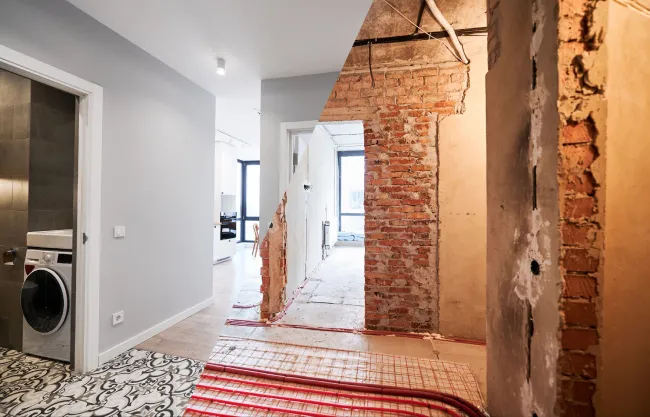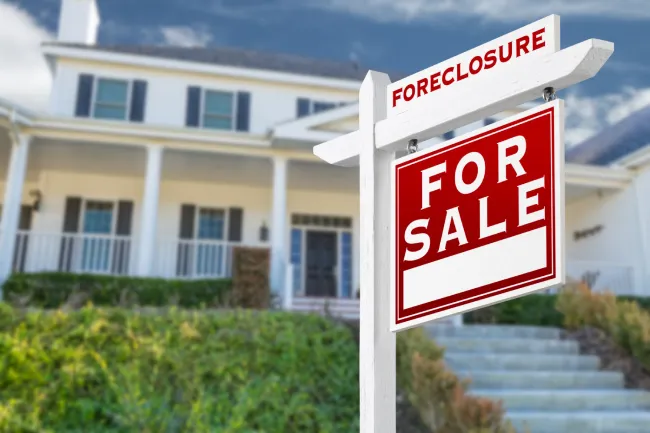As an investor, you are free to purchase property throughout the country. Out of state real estate investing opens up a world of lucrative opportunities that may otherwise be unavailable. However, long distance investing also comes with unique considerations and risks. Is buying out of state rental property right for you?
Why Buy Out of State Real Estate
Investors have different goals and standards when buying rental property. In many cases, investors can find a suitable property in the local real estate market that meets their goals and expectations. However, there are common reasons why investing out of state could be a more desirable and intelligent option.
For example, in a hot rental market, investors flock to the area. Gradually, that market becomes saturated. As this happens, the opportunities are no longer attractive. In some markets, real estate prices skyrocket. The properties are too expensive to support a decent return. Plus, investing exclusively in one market creates an undiversified portfolio. Your investments are subject to the movement of a single market. This adds unnecessary risk.
The Benefits of Investing Out of State
No real estate transaction is a breeze, and investing out of state adds to the challenge. However, the benefits of a savvy out of state investment could far outweigh the downsides.
Better Return on Investment
Each local market has unique dynamics. These include housing prices, operational costs and taxes. In addition, rental property demand, rental rates, the local economy and jobs market and population growth vary. Investing out of state allows you to find areas that support a higher ROI.
Diversification
A fundamental principle of investing is diversification. Keep in mind that some markets will rise substantially while others fall. Rather than filling your portfolio with properties from a single market, mitigate risks by purchasing real estate in a variety of markets.
Value Appreciation
Property value appreciation rates vary by location. At times, they also fluctuate significantly from year to year. By investing in multiple markets, your total portfolio value is less susceptible to significant market corrections.
The Drawbacks of Buying Property Out of State
There are several disadvantages associated with buying property out of state. However, these can largely be mitigated with proper steps. These steps include doing research, completing due diligence and having the right team on the ground. What are the drawbacks of making an out-of-state investment?
Dishonest Agents
Your out-of-state real estate agent will likely be unfamiliar to you. When working with a relative stranger, you expose yourself to risks. These risks include scams and fraud. Screening your real estate agent thoroughly as well as researching the property both lower your risk.
Inaccurate Estimates
Investment properties often have deferred maintenance. Significant damage that requires immediate attention is also common. When estimating these expenses, defer to a property inspection. Then, consult with a few contractors, and use these repair costs when preparing a budget.
Poor Market Knowledge
The local market dictates your short-term and long-term return on investment. Research current market conditions and projections. In addition, pay attention to local news stories and trends related to the economy and housing.
Unfamiliarity with Local Laws
Regulations in some markets are pro-tenant while they are pro-landlord in other markets. These regulations directly impact your property management and ROI. A real estate attorney can shed insight on the laws as they pertain to you.
Before Buying Rental Property Out of State
While considering the option to buy property out of state, your potential return on investment is a focal point. You can easily do a back-of-the-envelope calculation based on numbers provided in the listing. However, this is only a cursory first step in making an investment decision. What should you do before buying investment property out of state?
1. Understand the Market
It is imperative that you understand the ins and outs of any market before making an investment. This extends to local laws and regulations, property taxes, economic and real estate market conditions and other factors.
It is not enough to simply research the market online. Talk to local real estate professionals, property managers and owners. Speak with as many pros as possible to gain a deeper understanding of the market. Do not rely on one source for information.
2. Get Pre-Approved for Financing
Before exploring listings in a local market, identify financing options. The options depend on your qualifications and the project. For example, hard money loans are available for fix and flip projects. Knowing your maximum loan amount and loan-to-value ratio enables you to narrow the scope of your search.
In addition, knowing the interest rate and loan term enables you to more accurately estimate your return on investment for various properties that interest you.
3. Hire a Local Real Estate Agent
While preparing to invest in rental property out of state, interview several local real estate agents. Look for a seasoned Realtor specializing in income-producing property. The ideal agent has experience working with out-of-state investors.
Communication is critical with any real estate purchase, and it is imperative when you buy out of state properties. Before hiring an agent, spend several days reaching out to the agent in various ways. These include via text, email and phone. Gauge responsiveness through these interactions.
4. Tour the Property
Traveling between your hometown and the market that interests you is often less than ideal. However, it provides valuable information that you will not otherwise have.
After getting familiar with the local real estate market, spend time touring each property that interests you. Walk the grounds extensively. Talk to the tenants about their experiences living on the property. Tour the interior of vacant units. Get as familiar as possible with the property’s various facets.
5. Schedule a Property Inspection
A property inspection sheds valuable light on the true condition of an investment property. As a result, it is a critical aspect of due diligence.
If possible, walk the property with the inspector. Your inspector will point out issues and answer your questions on the spot. This provides you with far greater insight than you otherwise would have by simply reading the report.
6. Find a Property Management Company
You cannot easily and professionally manage out of state rental properties on your own. After all, you cannot show potential tenants the vacant units when you are hundreds of miles away. How will you collect rent and maintain the property? Who will respond to middle-of-the-night tenant issues?
A qualified, reputable property manager is a necessity with out of state real estate investing. Your local real estate agent may assist you with identifying suitable property managers. Tour properties run by the management company and speak to the tenants before making your selection.
7. Plan for Maintenance
Property maintenance is a primary concern for tenant satisfaction. It also minimizes deferred maintenance and optimizes property value. Often, a property management company has its own maintenance staff or a team of contractors on call.
Some investors prefer to use their own maintenance team. In some cases, doing so can save you money or result in better workmanship and faster responses. However, it takes time to assemble your own out-of-state team.
8. Research Property Taxes
If you plan to invest in a state with property taxes, carefully research tax rates at both the state and local levels. These taxes could range from 1% to 3% or more in some cases. A high tax rate is a sizable chunk of money from your net return. Be aware that tax rates can vary even within the same metropolitan area.
Looking to invest in out of state real estate? Macoy Capital provides hard money loans to real estate investors across the country. For more information about our financing programs, contact us today.








